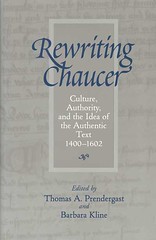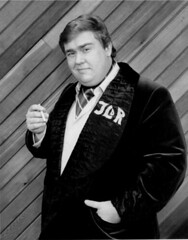 "Rewriting is writing," according to the old saw, but in a sense, rewriting is dewriting, undoing all the wonderful stuff one has spent oh-so-many-hours crafting.
"Rewriting is writing," according to the old saw, but in a sense, rewriting is dewriting, undoing all the wonderful stuff one has spent oh-so-many-hours crafting.
As I rework my novel once again, so my agent can send the all-new and improved book out to the pit bull ring of rejection, I have spent all of my creative juices of late on rewriting. So I dewrite a beautifully crafted scene that just doesn't work in context. Or I dewrite some hilarious dialog that works better in a Farrelly Brothers movie than my work.
Then I make the most painful dewriting decision of all: eliminating an entire character whose place in the book makes no sense whatsoever, erasing them like they never existed, like in an old Soviet history book.
Dewriting is different than simply rewriting in that it entails you completely ditching stuff or tearing it up so much that it is unrecognizable from the first draft. You destroy your previous work. You devalue what you’ve written. And find yourself devoid of your sanity.
You've heard the stories, felt the pain. Writers ditching dozens or hundreds of pages of their work, or tossing the whole damn draft out and starting from scratch. (Nabokov threw his working copy of "Lolita" into a fire; wife Vera rescued it). Dewriting is filicide of the novelist's art: one may ditch a piece from a collection or trim pages or even rewrite a short story 35 times, but such work is done with a scalpel, not an axe.
So as I cut through the rainforest of verbal badness as part of my effort to get the book (back) into fighting shape, it is worth pondering (on my part, at least) of just what it means to dewrite a novel, in terms of one’s own abilities.
A published acquaintance of Wife(apparently) does not do any rewriting. Perfection flows from the first draft, which may in of itself be a rewrite. If a story isn't working, she simply ditches it.
And I can't hate this person, because she is unconscionably decent, besides being preternaturally talented.
Those of us mortals less gifted have to content ourselves with hour after hour at the workbench, refining and refining, but often dewriting. To wit: the first draft of my novel was based upon the narrator's childhood talent of being able to identify the brand of soft drink from the sound of its carbonation. Scenes were based on this characteristic; dialog crafted to show it; plot points defined because of it.
When it became apparent that this supposedly integral part of character and plot was really nothing more than a wacky jumping off point, out it went. Dewritten it was, as were dozens of pages following it, as I lost and gained characters, hacked out scene after scene. 
This looks like fun
Flannery O'Connor supposedly said that genius is the ability to edit one's own work, and though she also supposedly said, "Those Krystal burgers are some serious good eatin'," I must agree with the late Ms. O'Connor. Most people are the best editors in the world until they pick up their own stories.
I'm not talking about fear, writer's block, or otherwise. No, this is the inability to see what others find obvious. It's almost impossible to consider your own story objectively, which is why it's good to have a handful of trusted readers (as opposed to an MFA workshop, where for every person actually trying to help, there's two stupidheads just trying to make a point).
If art is essentially about making choices, dewriting is the hardest type of rewriting of all, because it means you made some seriously wrong choices in the first place. It can lead to serious self-doubt, novelist’s greatest enemy. I should know. You have to kill the bastard.
D.H. Lawrence would write a novel, throw out the manuscript, and then start again—on the same book. After seven or eight tries, he’d have a book. He was a nutjob, but also a genius. If he can make a 100,000 word mistake eight times, I can dewrite half that many.
Thursday, June 15, 2006
Dewriting
Subscribe to:
Comment Feed (RSS)


|